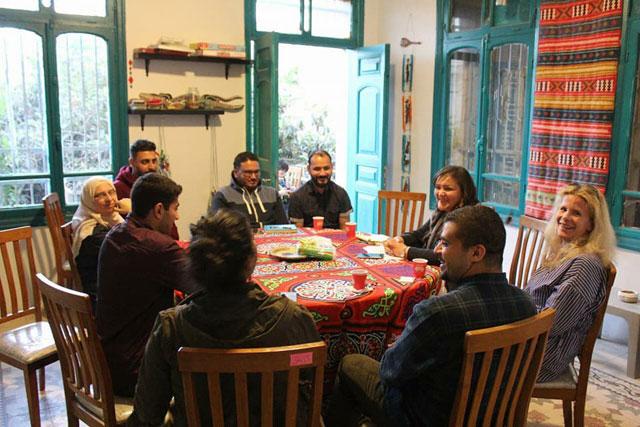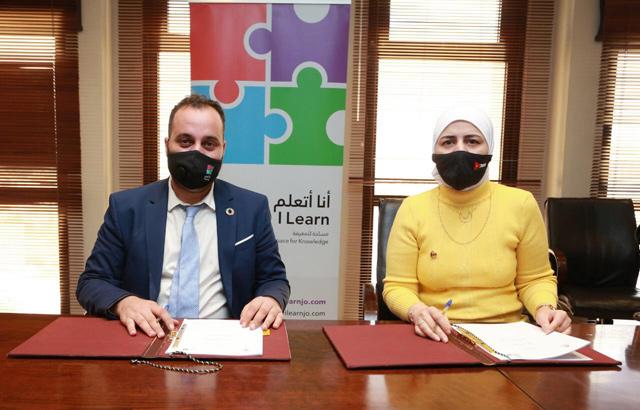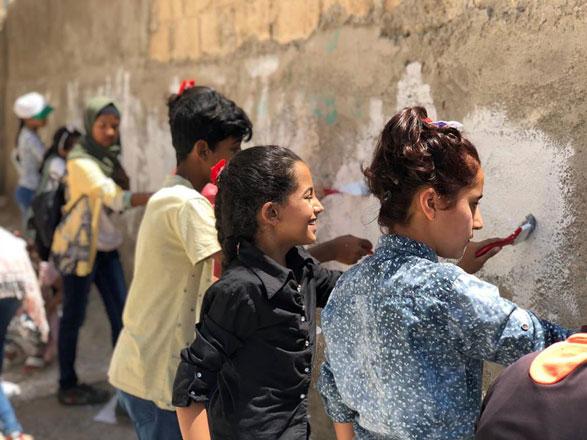You are here
‘Digital technology is transforming work, lives and society’
By Camille Dupire - May 17,2018 - Last updated at May 17,2018

Digital innovators take part in the first Jordanian meet-up for Digital Arabia Network in Amman recently (Photo courtesy of #DAN)
AMMAN — Local digital innovators recently gathered to participate in the first Jordanian meet-up for Digital Arabia Network (#DAN), a regional network aimed at enhancing the digital technology potential in various fields by connecting digital pioneers across the Arab world.
“#DAN is the lab for the digital future in the Arab world. Ayad Al An and I strongly believe that Arab economies and societies will profit from digital transformation which is why we decided to built a network a of entrepreneurs and experts to connect all those who contribute to the transforming of our life into a better place: in arts, fintech, education, business, economy, media, NGOs and politics,” said #DAN Co-chair Bassant Helmi.
As part of its regional activities, #DAN organised a Jordanian meet-up last week at Shams Community space in Amman, which witnessed the participation of two Jordanian members, Saddam Sayyaleh and Deema Anani as well as German member Lanna Idris, who visited Jordan to discuss the future of the digital community in MENA.
“Change in labour is mattering to all of us,” agreed participants in the roundtable, which covered the challenges startups and social entrepreneurs face in their creative endeavours and potential future collaborations to be developed.
Saddam Sayyaleh, a member of the #DAN network spoke about his experience at ILearn, a Jerash-based youth organisation focusing on informal education.
“I have learnt a great deal of things that the Jordanian youth and young entrepreneurs are missing as there are few talks about the future of jobs and how automation will affect our future. Many young high school graduates are still choosing their university major without thinking of the future and what type of jobs will be needed,” he remarked, stressing the “huge lack of discussion with the general public about the future of work”.
Sayyaleh called for “starting the conversation on what majors are needed for the Jordanian market to be able to compete on the global scale in the future”, noting that ILearn is working on developing such discussions at the local level to bring them to decision makers and education experts.
“We need to distribute the capability and creativity of the digital sphere in the Arab region in the future. We will interact more across regional borders in the fields of education, fintech [or financial technology] and arts,” commented Helmi after the event, voicing his happiness with the “intensive and highly motivating” discussions conducted in Amman.
Jordanian Deema Anani, member of #DAN steering committee, said: “We had interesting talks on the future of work in light of digital transformation and machine learning. ‘How ready are we for it? Why do Jordanians believe this transformation is not going to impact them? Furthermore why is it not an opportunity to go beyond local markets to regional and global markets?’ were some of the interrogations we tackled.”
“More than an IT platform, Digital Arabia Network is about the impact of digital transformation across all spheres. Networks are fundamental to the exchange of ideas, projects and opportunities,” she stressed.
One of the seven board members, she recalled how she was acquainted with #DAN through an informal network. “We realised that networks tend to be perceived as something exclusive to ‘the happy few’. So, we wanted to broaden the base and worked towards bringing together Arabs from different walks of life who share a passion for creating a community committed to reaping the benefits of digital transformation,” Anani told The Jordan Times, concluding “after all, digital transformation should break barriers and boundaries, not grow people apart.”
“#DAN aims at disrupting the immobility in the Arab World through connecting digital minds, creative individuals, inspiring initiatives and projects, strong businesses and active NGOs,” Helmi highlighted, noting that the network founders “believe in the potential of the digital technology in fostering gender equality and enhance the social and financial inclusion of all communities in the region”.
Embodying this vision, participant Lanna Idriss spoke of her experience as the founder of Frankfurt-based NGO and start-up Gyalpa e.V. and Gyalpa UG, two organisations concentrating on women empowerment in the MENA region, with a special focus on the economic and cultural fields.
Related Articles
AMMAN — Jerash-born Saddam Sayyaleh could have easily fallen off the grid after the orphan dropped out of school when he was a teenager.&nbs
AMMAN — The Ministry of Digital Economy and Entrepreneurship has signed two memoranda of understanding for three years with NasJo Training C
AMMAN — Driven by the belief that the root cause of children and youth vulnerability stems from a “discouraging educational system” and a la



















